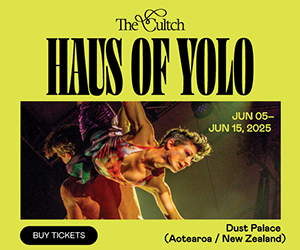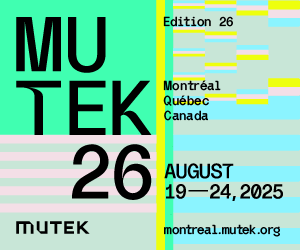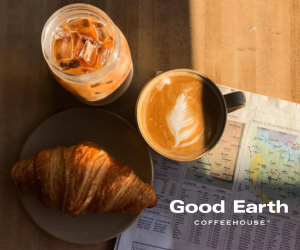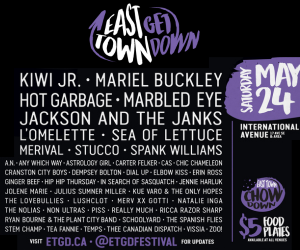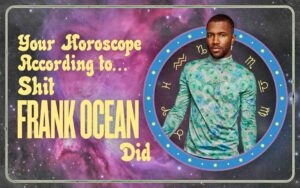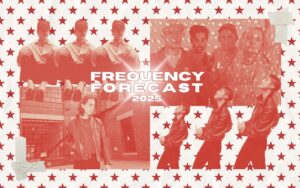Sinzere: A Big Picture State Of Mind
The Obie Trice-approved rapper is punching up with lyrical prowess on new album, Tabula Rasa.
by Ben Boddez
Photos by Sebastian Buzzalino
- Published on
Since debuting with the Ghetto Gabby EP in 2019, Calgary hip-hop artist Sinzere has dropped a project consistently every year – plus a few extra singles on the side. And she’s not planning to slow down anytime soon. That kind of pace is understandable, considering the relentless passion that she puts into getting her message out; something you’ll hear any time you play one of her songs.
Sinzere’s cold conviction and hard-hitting beats are reminiscent of her contemporaries like Tyler, the Creator or Pusha T, but what truly sets her apart is her blunt and eye-opening lyricism about the history of racism and stepping into her ancestral power in the face of it all. It makes her a refreshing disruption, not only to her hometown’s music scene, but to the hip-hop community at large. “It wasn’t until I became more aware that I noticed the juxtaposition between hardcore rapping and cowboy town,” she says of finding her place among her prairie surroundings. “Trying to balance the two has been tough, but the goal is the message, so as long as I keep that at the forefront, that overrides all the other noise. I give it to you raw, and it doesn’t always come out sweet.”
That rise in awareness is the catalyst behind everything Sinzere does. Inspired by rappers who blend big personality and mic presence with social commentary – NWA is in constant rotation, and she points to The Notorious B.I.G.’s classic “Juicy” as the first rap song that really stuck with her – their lyrics caused Sinzere to take an online deep dive on her own history. What she found is the reason behind the obligation she feels to elevate the messages in her favourite rap songs even further. You won’t find many metaphors in her music – she just outright says it. “The education system in Canada, we only learn from slavery onward,” she says. “They don’t have any account for the 6000 years prior, the ancient African people of antiquity, how prosperous they were and how harmonious the world was in those times. I never understood, and as a result, a piece of me was missing. This is about stepping into your highest form, but also understanding who you are. I had to clear any preconceived notions I had about myself, and then unlearn and relearn the truth.”
“I had to clear any preconceived notions I had about myself, and then unlearn and relearn the truth.”
Sinzere’s music can often contain some uncomfortable, but necessary truths, but her main goal is to help listeners in her community realize their greatness. She believes that despite the efforts of similarly-minded superstars like Kendrick Lamar and J. Cole in the modern-day hip-hop landscape, rappers need to use their platforms to zoom even further out to the bigger picture. Most of what Sinzere speaks about is deeply systemic, and she ties everything from violence in Black neighbourhoods to the kind of messaging currently profitable in hip-hop to a larger societal order that needs to be upended. “The minute NWA went platinum, the powers that be understood how attractive this style of music was, so it’s no secret why when you look at rap today, you’re seeing a certain destructive message amplified,” she says. “That’s why artists like myself matter even more, because you don’t hear about artists killing each other or being murdered in the streets in any other genre of music. I don’t have enough fingers on these hands to count the number of rappers in recent times that have died.”
With that in mind, Sinzere strives to find a perfect balance between the two. Many of Sinzere’s tracks have more celebratory, boastful hooks, tapping into what can be so energizing and confidence-boosting about throwing on a rap song as you walk down the street, but it’s all part of the plan to do for others what a group like NWA did for her. “Those hooks are the bait, the worm on the line,” she says. “I don’t blame people, but it’s just how they’re trained to listen to hip-hop, through cookie-cutter style music. I wouldn’t say my hooks are cookie-cutter, but I make them in a way where it feels like a party at first. But when you bring your awareness into the present, you realize: ‘Oh, shit! She’s really educating us on some shit!’”
The title of Sinzere’s latest work, Tabula Rasa, brings it all together. It’s a Latin phrase that means “blank slate,” but it’s also the name of a psychological theory that argues that human beings are truly a blank slate when they’re born, and that any biases or discrimination are taught to them rather than an innate human condition. Sinzere’s approach nods to the theory in full agreement, but also includes the need to erase the systems in place and begin again.
For all of Sinzere’s status as a knowledgeable rap historian, she’s been able to attract the attention of a number of legendary figures, including opening slots for Rakim, KRS-One, Raekwon and Rick Ross. Still, her biggest moment of inspiration comes from crossing paths with D12’s Obie Trice while working at her mom’s old salon and spa. His tour bus and entourage rolled through on a rainy day, and Sinzere found herself giving Trice a haircut. “I actually ended up connecting with him personally, and he’d actually just lost his mother at the time,” she says. “He was explaining to me how his new project was inspired by her. So I ended up getting on his tour bus and rolling out with him for the day. He had a signing in the mall, and it went from that to the studio.”
“He grabbed me after and said ‘Honestly, you have something that I have never seen before in my life.’”
It all led to Sinzere locking down an opening slot for his show later that night. While Sinzere was still reeling from the luck of her circumstances and describes phasing in and out of “live show mode” on stage, she was able to take advantage of the opportunity with her unique skill set. “What I couldn’t have foreseen was Obie coming and standing in front of the stage. He got into a fight with someone in the crowd, front centre, cleared the area and just stood there watching me perform,” she says. “He grabbed me after and said ‘Honestly, you have something that I have never seen before in my life.’”
Sinzere is hoping she can use that kind of appeal to connect with the younger generation as well. Especially in a chaotic time when she feels that many are losing hope, she gestures to the need to amplify the voices of those who are going to chart the globe’s future as another reason for her tireless pace. She’s planning for this to be her biggest year yet. “This album deserves a Grammy,” she says. “This album deserves a Juno. This album deserves a Polaris Prize. This album deserves coverage from every publication and I won’t stop until it’s on every single playlist. There is no limit. I won’t even say the sky’s the limit.”
By Stephan Boissonneault
In a wistful one-shot video the Montreal-based songwriter traverses dream pop terrain and emotional crossroads.
By Glenn Alderson
The Vancouver-based artist kicks off a new era with a slow-burning R&B ballad pulled from her upcoming EP Product of Loneliness.




